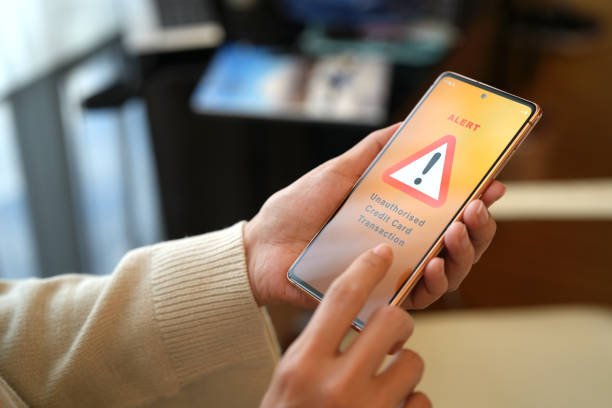In recent years, political robocalls have become a prominent tool in the arsenal of political campaigns. Among these, the 6476952523 Political Research Robocall has garnered significant attention. This article delves deep into the intricacies of this robocall, exploring its purpose, mechanisms, and the broader implications it holds for political discourse.
What is a Political Robocall?
Political robocalls are automated phone calls that deliver pre-recorded messages to a large audience. Typically used during election campaigns, these calls aim to inform, persuade, or mobilize voters. They can include messages from candidates, surveys, or research queries.
Definition and Purpose
The primary goal of political robocalls is to reach a vast number of voters efficiently and cost-effectively. By automating the process, political campaigns can disseminate their messages without the need for extensive human resources. This method also allows for the collection of valuable data through surveys and polls.
The Emergence of the 6476952523 Political Research Robocall
The 6476952523 Political Research Robocall has emerged as a notable example in the realm of political robocalls. Originating from the phone number 647-695-2523, this robocall focuses on gathering political research data from recipients.
Historical Context
The use of political robocalls dates back to the early days of automated telephony. However, advancements in technology have significantly enhanced their reach and effectiveness. The 6476952523 Political Research Robocall represents a modern iteration of this tactic, leveraging sophisticated algorithms and data analytics.
Mechanisms Behind the 6476952523 Political Research Robocall
Understanding the technical and operational mechanisms of the 6476952523 Political Research Robocall is crucial to comprehending its impact.
How It Works
The robocall system dials a predetermined list of phone numbers, delivering a standardized message to each recipient. Typically, these messages include instructions for the recipient to participate in a survey or provide feedback on political issues.
Data Collection
One of the primary functions of the 6476952523 Political Research Robocall is data collection. The information gathered can range from voter opinions on specific issues to demographic data. This data is then analyzed to inform campaign strategies and decisions.
The Impact of Political Robocalls on Elections
Political robocalls, including the 6476952523 Political Research Robocall, have a profound impact on the electoral process.
Voter Mobilization
Robocalls can effectively mobilize voters by reminding them of upcoming elections, encouraging voter registration, and providing information on polling locations. This direct communication can increase voter turnout, particularly in closely contested races.
Persuasion and Influence
Beyond mobilization, political robocalls aim to persuade voters. The messages often highlight key campaign issues, candidate qualifications, and critical policy positions. By directly addressing voters, campaigns can shape public perception and sway undecided voters.
Ethical Considerations and Controversies
Despite their effectiveness, political robocalls are not without controversy. The 6476952523 Political Research Robocall, like others, raises several ethical concerns.
Privacy Concerns
One of the primary ethical issues is privacy. Recipients of robocalls may feel that their personal space is invaded. Additionally, the collection and use of personal data without explicit consent can lead to concerns about data security and misuse.
Regulation and Legislation
In response to these concerns, various regulations govern the use of political robocalls. For instance, the Federal Communications Commission (FCC) in the United States has established guidelines to protect consumers from unwanted calls. These regulations require robocalls to include opt-out options and adhere to specific time constraints.
Case Studies: Successful Use of Political Robocalls
Examining case studies can provide valuable insights into the effectiveness of political robocalls.
The 2008 Obama Campaign
The 2008 Obama campaign utilized robocalls to reach millions of voters. By delivering targeted messages, the campaign successfully mobilized a diverse electorate, contributing to a historic voter turnout.
The 2016 Brexit Referendum
During the 2016 Brexit referendum, political robocalls played a significant role in shaping public opinion. Both the “Leave” and “Remain” campaigns leveraged robocalls to disseminate their messages and gather critical data.
Technological Advancements and Future Trends
As technology continues to evolve, the future of political robocalls, including the 6476952523 Political Research Robocall, looks promising.
Artificial Intelligence and Machine Learning
Integrating artificial intelligence (AI) and machine learning can enhance the effectiveness of robocalls. These technologies can personalize messages, analyze data more efficiently, and predict voter behavior with greater accuracy.
Enhanced Data Analytics
Advanced data analytics will allow campaigns to segment their audience more precisely. By understanding voter preferences and behavior, campaigns can tailor their messages to resonate with specific demographic groups.
Mitigating the Negative Aspects
While the benefits of political robocalls are evident, addressing their negative aspects is crucial.
Enhancing Transparency
One approach is to enhance transparency. Campaigns should clearly disclose the purpose of the robocall, the data being collected, and how it will be used. This transparency can build trust and mitigate privacy concerns.
Strengthening Regulations
Stronger regulations can also play a role. By enforcing stricter guidelines on the use of robocalls, authorities can protect consumers from misuse while allowing campaigns to benefit from this communication tool.
Conclusion
The 6476952523 Political Research Robocall exemplifies the evolving landscape of political communication. While it offers significant advantages in terms of reach and data collection, it also poses ethical and regulatory challenges. By balancing these aspects, political campaigns can harness the power of robocalls effectively and responsibly.

